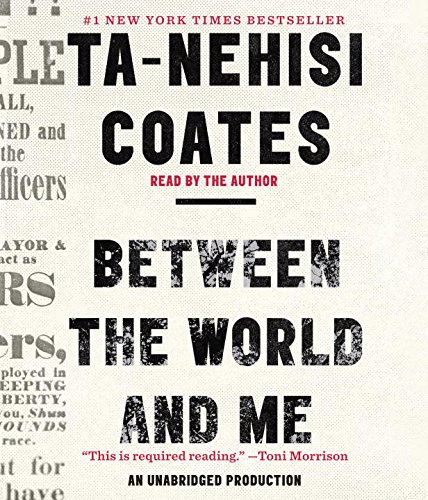Thoughts about Books: Between the World and Me
Between the World and Me is an incredible book. It is hard to say I loved it, because it is hard to come to terms with the content—the Dream, the America I am part of—that is not flattering or picturesque. But I feel that Between the World and Me is a book that must not just be read, but one that must be talked about. Looking back at what I’ve read this year I have no doubt this is the most important, and affecting, book.
Between the World and Me is hard—in the uncomfortable way—to talk about. In 152 poignant pages I was faced repeatedly with an American reality I either chose to believe did not exist or had no knowledge of. I’m not sure which is worse. I relish being exposed to writers, genres, and histories I know nothing about, but this stung with the feeling that while Black history is not my history, American history is. The two are so intertwined, as Coates lays out. I barely know the half of it. Fortunately, through his retelling of his own learnings he provides more source material to a history told by black voices. It is a history I look forward to exploring.
The most crushing lesson Coates is passing on to his son is the need to protect the black body from so many pieces of The Dream that can take it away. From the home to the street to the school to the police to a justice system that feels—or is—biased against the black body, Coates has learned the hard way to always be vigilant to protect his body. Violence, or threat of violence, is a way of life. At any moment his body could be taken by force. As hard as he has worked to protect his son from these truths, he knows they are lessons his son must learn to stay safe in this world.
I cannot fathom the position Coates is in. The fear—for his body, the bodies of his loved ones, the bodies of his people—is almost all consuming. He has spent years asking questions, researching theories as to why, and still he has no real answer. For his son to grow up knowing less of the fear is wonderful, but as Coates points out, The Dream and the American justice system that protect it are not interested in the elevation of the black body.
Between the World and Me brought me face to face with an American reality that, though I did not know it existed, I feel somehow complicit in. I have been presented with an American history and identity that I know so little of, with thinkers and writers that tell a different history—and more painful history—than the one I learned in school. To not share this book feels irresponsible. The subject is tender and charged with emotion, but it must be talked about. I fear that until more people who call themselves white come to face the reality Coates presents, there will always be a divide.
Amazon: Between the World and Me
